Himalayan Ice EXCLUSIVE: The North Face Athlete Vasu Sojitra Alleges Systemic Racism; Film Team Responds
Vasu Sojitra called out the 2019 ice climbing documentary on Instagram. The Outdoor Journal interviewed some of the crew for their response to the allegations.
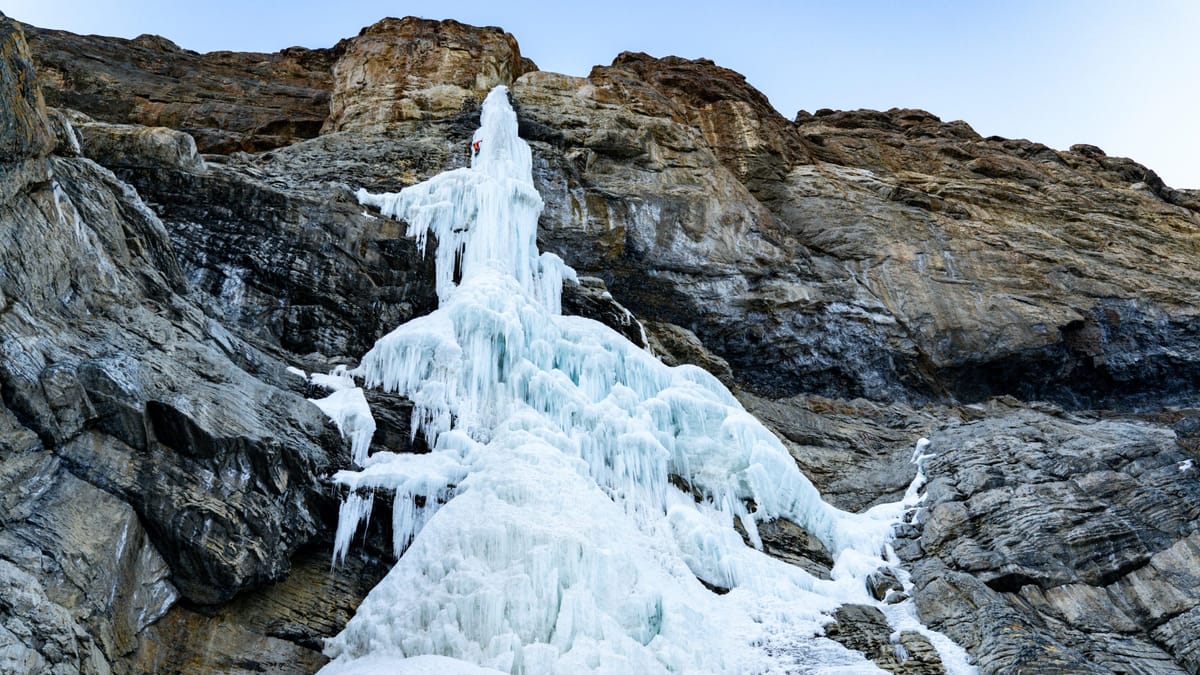
On April 29th, 2020, TNF athlete Vasu Sojitra called out the film Himalayan Ice on his Instagram Stories,for perpetuating a “white saviour complex, white complacency and indigenous erasure”.Himalayan Ice: Adventures in India’s Most Remote Valley, a 46 minute film currently available on Amazon Prime in the US,chronicles winter ice climbing in a far corner of the Indian Himalaya. As per the blurb of the film on Amazon Prime and Youtube: “In December 2018, La Sportiva alpinists Ari Novak and Karsten Delap set out for India to explore one of the most remote valleys in the Indian Himalaya with local climber Karn Kowshik.” The documentary was first shown in festivals across the US in 2019, before hitting Prime.
https://www.youtube.com/watch?v=7iIMwQoERKk
Other festival websites, such as the Portland Alpine Fest, add more to the film’s description: “Their goal was to meet with the indigenous population of the Spiti Valley and try to support local ice climbing. What they found was perhaps the biggest treasure trove of unclimbed ice in all the Himalaya. And they set out to create a film about the experience. Ari Novak will be presenting about the upcoming film Himalayan Ice, which tells the history-making story of their journey to put up 9 first ascents (including "Snow Lepard" HWI7 [sic] the hardest water ice line in the Indian Himala [sic]) and start an ice climbing movement by the local population.”
From The Outdoor Journal's understanding of the film, directed by Ari Novak and Austin Schmitz, it chronicles the December 2018 Piti Dharr ice climbing festival in the Spiti Valley of Northern India, organized by Indian climbers Bharat Bhushan, Prerna Dangi and Karn Kowshik.
The Outdoor Journal reached out to Vasu Sojitra, Karn Kowshik, Ari Novak, Karsten Delap, Petzl and La Sportiva (the two brands called out by Sojitra) to try and get everyone’s perspective on the matter. At the time of publication, Sojitra did not respond to our specific request for an interview (as noted below), and La Sportiva's PR company did not respond to our emails.
Vasu Sojitra's Allegation
“This type of trashy media continues to perpetuate #WhiteSaviourComplex which in turn feeds white supremacy AND the power dynamics that White athletes have over Black and Brown people”, Vasu Sojitra said in his Instagram story on April 29th, pasting his message atop screenshots of Petzl’s Facebook post on the film. His full words can be seen below.
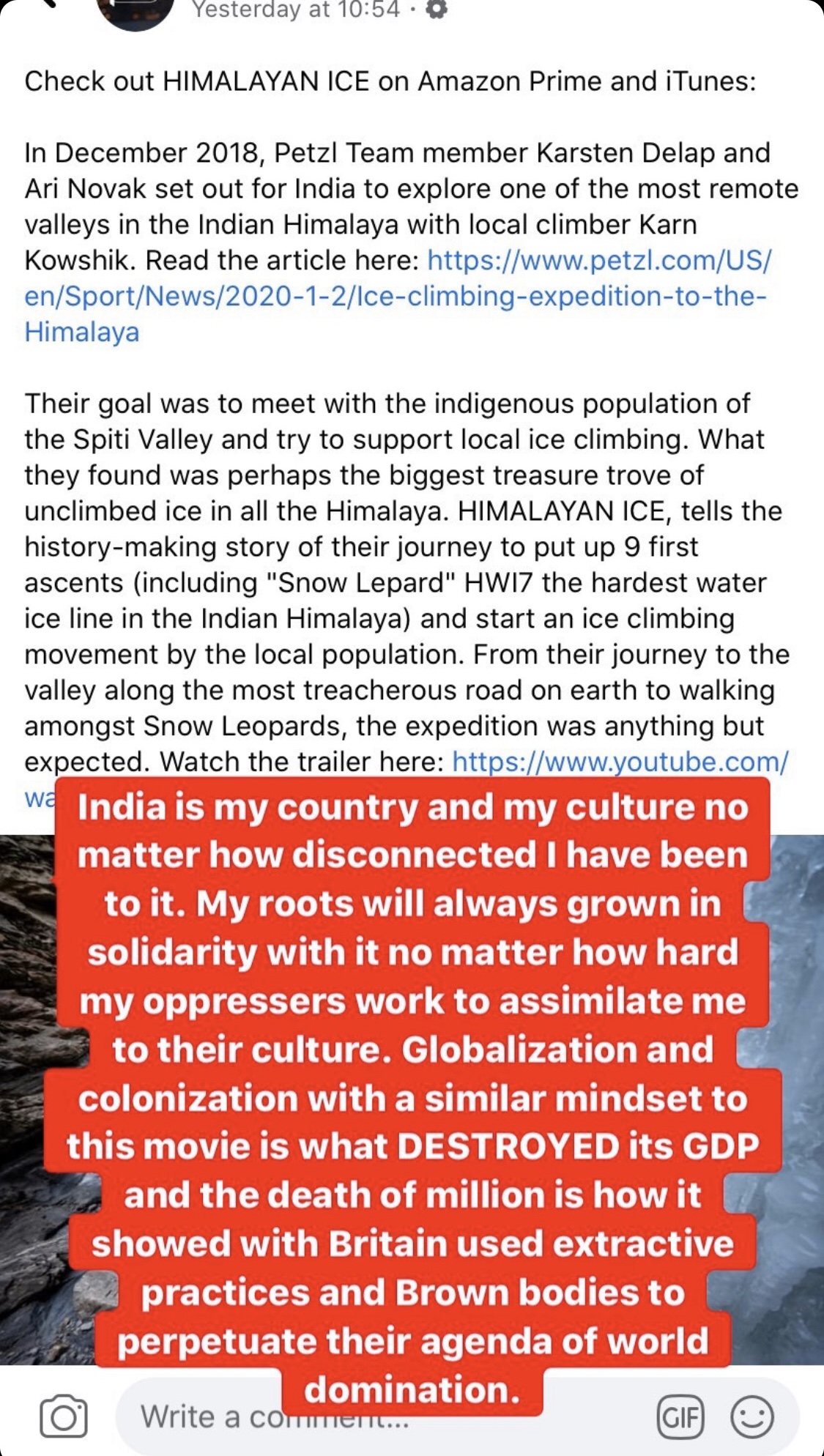
Among several other points, Sojitra compared the film and its treatment of Indians to Christopher Columbus and the European colonization of America. Before providing a link to The Avarna Group, a platform that supports the “outdoor and environmental sector in their evolution toward justice, equity, diversity, and inclusion”. Sojitra finally called upon his followers to support him: “I’m pissed and angry and even more motivated to dismantle bullshit oppressive ideology like this. If you’re with me then help me leave a review on Youtube and Amazon Prime about this film. Every moment needs to be amplified for a just cause. Help me do that by swiping up to leave an Amazon Prime review. This shit should NEVER happen again!”
Sojitra then proceeded to provide links to the film’s trailer on Youtube and Google Play.
Targeting the Brands and Other Athletes
"This is not enjoyable for me”
The next day, April 30th, Sojitra posted a new thread on his Instagram stories, titled “Day 2 on Himalayan Ice”. The Instagram stories with a content warning—“white complacency, white savior complex, indigenous erasure, and systemic racism in media". He went on to call out La Sportiva, addressing them in his next post, “@lasportivana you’re the main culprits of this. Given these are both your athletes and you’re the title sponsor”. He published a screenshot of La Sportiva’s IG Q and A from April 21st, 2020, on the film, “Who’s got a question for Karsten or Ari about the film or ice climbing?” To this question, he asked the gear brand, “How much do you know about the white saviour complex and its negative impacts on this film?” He said he took this opportunity to call them in and have a private conversation on 04/21/20, “with saved receipts b/c as the patterns go white led companies do not ‘want’ to talk about race. ‘It doesn’t affect us so why does it matter?’”
Vasu proceeded to show a screenshot of him asking La Sportiva, “Why was indigenous community completely erased from this even though this was their community?” In the stories, Vasu replaced the local's name with the “indigenous community” for “privacy”. The local climber in the film was Karn Kowshik. La Sportiva were then asked why athletes Karsten Delap and Ari Novak did not want to answer this in a private conversation. Finally going on to say “It’s not like I enjoy calling people out on social media. This resurfaces so much generation trauma for my people. This is not enjoyable for me”.
Sojitra pasted another question he asked La Sportiva—“Did you know how much space you took up in a film, not about your culture?” Below that, stating, “Again, @lasportivana did not share this and we could’ve had a private conversation”. Ari Novak and Karsten Delap were tagged, “@dasnovak and @karstendelap would you be open to answering this question? And to top that off do you know how the amount of space you took up in this film was a subconscious tactic to silence the community you were working with from having their own space to share their emotions and narratives on your colonization of their space?”
While not the specific Q&A that Sojitra called out, another Q&A interview on the film with Novak and Delap is available on La Sportiva's website, dated November 2019.
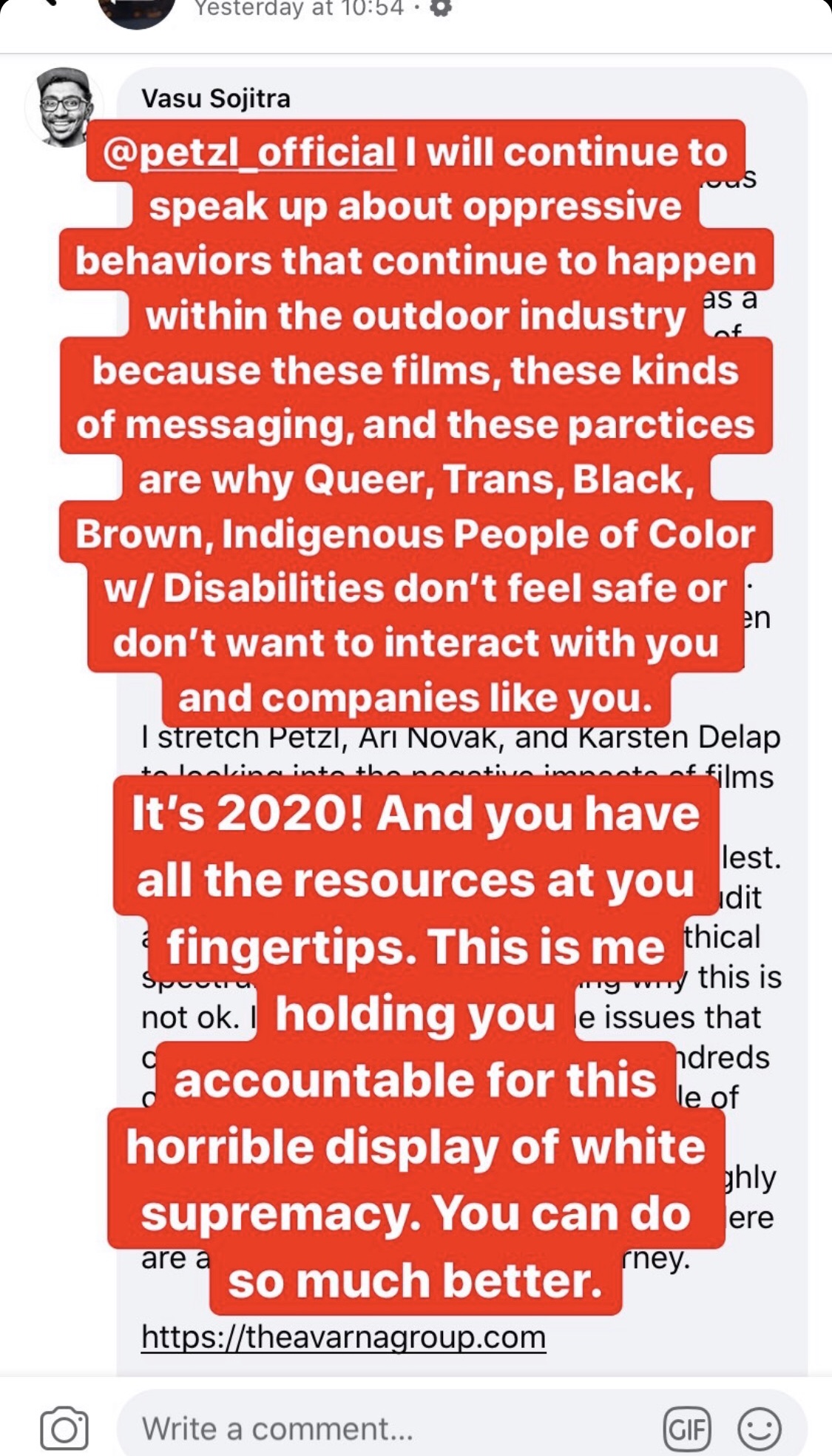
The Reaction
"We take your feedback to heart.”
To Sojitra's earlier post, calling out Petzl, a response was posted, “Hello Vasu, thank you for your message on this very important topic. We are in business to help everyone to access their inaccessible. We do it passionately and with good intentions. Thank you for speaking up and reminding us that these types of narratives can pose certain problems. We will be sure to share your messages with our colleagues internally. We’re always improving the manner in which we produce our media—and we take your feedback to heart.”
In response, Sojitra said, “Thank you for reaching out. And putting some action items on the table. Please tell your team to pull the content off all of your marketing platforms. If you are unable to do that I’m going to collaborate with other outdoor advocates to start a “boycott Petzl” campaign while heavily focusing on the community of color that is engaged in the outdoors to not purchase any products from Petzl. Please share that with your team.” Sojitra concluded his stories by asking his followers to review “this violent film that has very little regard for Indigenous peoples in India”, and provided links to the film on Amazon Prime, Youtube, and Google Play.
The next day, May 1st, Sojitra started his final Himalayan Ice thread, again using Instagram stories as the medium, titling it, “Day 3: Himalayan Ice”. The first story ready “This will be my last public blast to hold boundaries. @lasportivana @petzl_official @karstendelap @dasnovak listen up.”
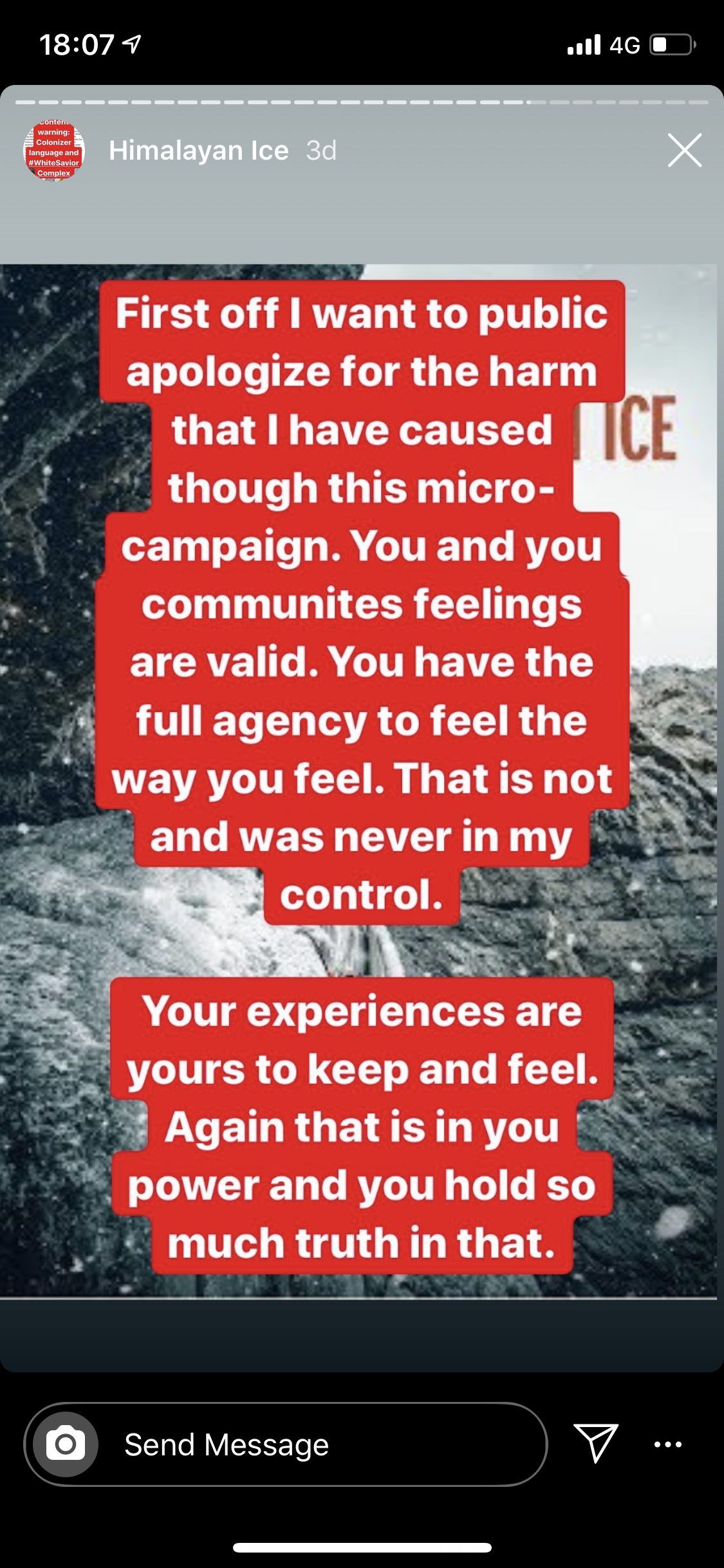
“First off I want to publicly apologize for the harm that I have caused through this micro-campaign. You and your communities feelings are valid. You have the full agency to feel the way you feel. That is not and was never in my control. Your experiences are yours to keep and feel. Again that is in your power and you hold so much truth in that. What is in my control is me speaking truth to power and what @lasportivana @petzl_official @dasnovak @karstendelap in producing the film was not ok. Your experiences were not portrayed genuinely to celebrate and elevate communities of color. It was incredibly whitewashed to watch at every Ice Climbing festival. This is not only my narrative but also the narrative of so many people of color in the States that experienced the film. I stretch all of us to realize the impacts of false narratives and the #FakeNews complex in creating films whose intentions are to celebrate diverse populations. The only trickle down that works is the trickle down of oppression. Yes your community’s experienced something extraordinary, but I wish that was shown. B/c it wasn’t by the filmmakers and sponsors. Our communities suffer with whitewashed narratives like these”.
Vasu concludes by thanking Petzl for taking down “such a culturally insensitive post”, calling it “one step towards a common goal”. He calls on Petzl and La Sportiva to take a few more steps—“Sponsor the @pitidharr Ice Climbing Fest the same way you support all the fest in the states. Support the directors and leadership the same way you support the athletes and directors in the states. Hire an Indian Film production company to create an authentic film. Treat the Ice Festival with the same respect you would with those in the states”.

The ice climbing festival, Piti Dharr, was highlighted in the film, and is the brainchild of local climbers Bharat Bhushan, Prerna Dangi and Karn Kowshik. Sojitra ended his last series of IG stories on the matter by sharing a screenshot of Piti Dharr’s current Indian sponsors, saying “let’s go from this to THIS!!!” He then shared a photoshopped screenshot where he added Petzl and La Sportiva to the Indian ice climbing festival’s list of sponsors. He said, “the team @pitidharr is literally moving mountains. Keep kicking ass. It’s being seen and we are loving how it has grown in the past 5 years! Avajo (goodbye) for now”.
"This harms us"
The Outdoor Journal spoke with Karn Kowshik, Indian alpinist, mountain guide and Piti Dharr festival co-founder. Kowshik is prominently featured in the film, and in his own words, invited climbers Ari Novak and Karsten Delap to India.
Kowshik told The Outdoor Journal, “I heard about this first through social media, and after that Vasu sent me a message. His message kind of hinged on the understanding that the experience of shooting this film wasn’t nice for us which wasn’t true. Working on this was not only extremely fun but also a really cool sharing experience based on a close friendship”.
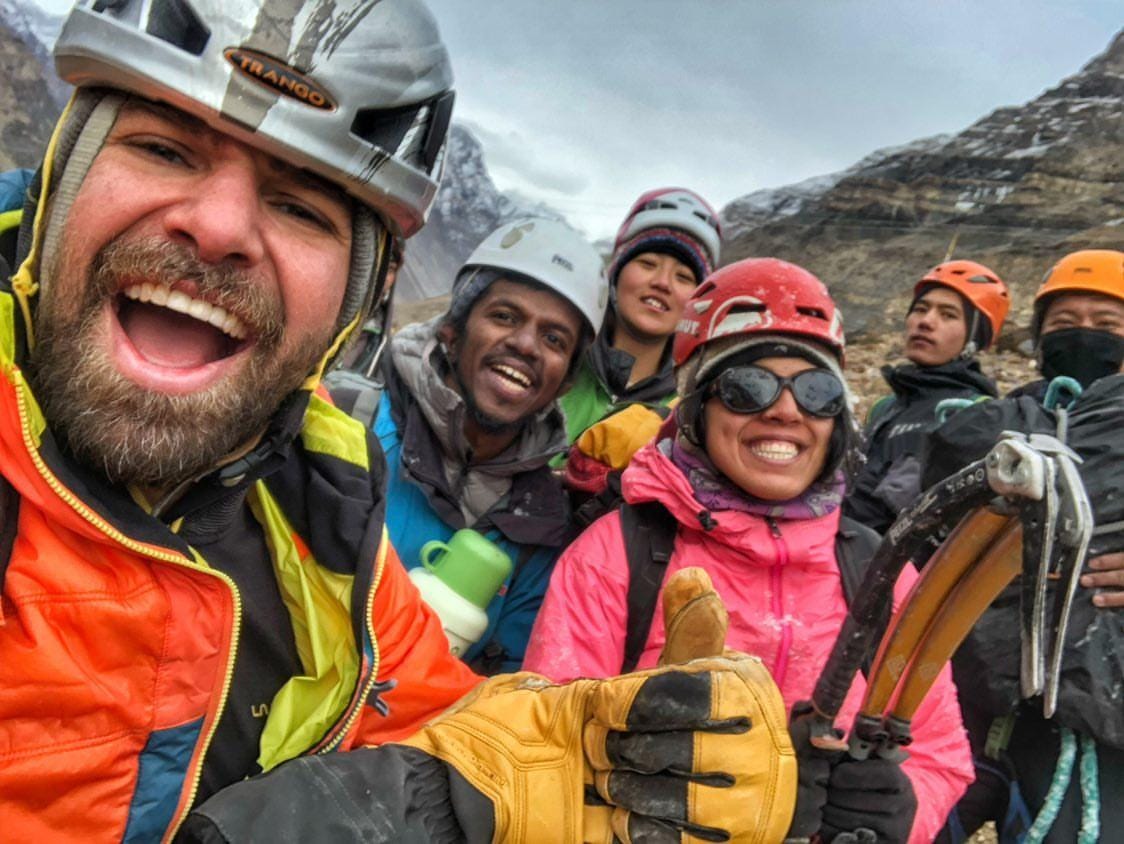
"We did respond to him but our responses don’t show in his IG highlights”
He further added, “Our main concern obviously was that his actions hurt our community”. Actions that they deemed strong enough to warrant sending a letter to The North Face, Sojitra’s main sponsor, signed by all three co-founders of the festival - Karn Kowshik, Bharat Bhushan and Prerna Dangi. The Outdoor Journal was asked not to publish any part of it, on the grounds that it was a private matter between the two parties.
Kowshik also asked Sojitra to refrain from posting more on Instagram, stating that, “The medium of IG doesn't really make for conversation. At this point, the balance power is completely in his hands. We don’t have close to the following he has so us posting on our IG doesn’t achieve anything. And we did respond to him but our responses don’t show in his IG highlights”.
“The problem is that the action Vasu has taken, according to his words, is to protect the interests of the people of colour in the American outdoor world. And we don’t think it’s right that those interests should clash with interests of Indian climbers because historically Indian climbers are also subalterns in the climbing world. While I don’t claim that subaltern status, Indian climbing is definitely a post-colonial climbing culture, and most of the climbers at the festival are actually local Spitians who we can call indigenous people”.
“This hurts our festival—and it’s incredibly hard to put this festival together, in the middle of nowhere, climbing water ice, which is gear-intensive and resource-intensive. We’re still working with ancient climbing gear and we’re trying to provide this climbing experience to local climbers mostly, and also for a fair amount of climbers from all around India.
https://www.instagram.com/p/B_xbb6Sj1Bo/
And for all the local climbers, this is an economic activity. A lot of them work as guides, and to be able to give them these skills elevates them to the upper echelons of the guiding world. So the festival isn’t just a fun activity, it’s definitely based on upgrading skills of the local climbing and guiding community, and they’ve taken to it with full heart”.
"We’d genuinely like to know where these specific instances are"
Kowshik proceeds to explain his second major complaint with Sojitra's posts—“By doing what he did, he robs us of our voice and our agency. We have problems and we’re aware of them and we have our own strategies to combat them and take them on. Whether they’ve worked or not so far, they are our strategies. So where we want to go, what we want to do, that’s our call to take and not his. Another concern is that many of the facts he states are not true. He starts by saying the film didn’t show what really happened. That’s not true. What happened was a wonderful experience and the film aims to show that. In fact, on his post in the La Sportiva page he asks why I was left out of the film. That’s not true—I have more screen time than both Ari and Karsten combined. So, that’s a fact. It’s also a fact that in the opening credits of the film, it says ‘featuring Karn Kowshik, Prerna Dangi, Bharat Bhushan’. So it doesn’t place us in the background but talks about us as featured climbers. It shows Prerna’s climbing, it shows Bharat’s climbing journey. It’s not accurate to say that we didn’t get enough time”.
When asked about Sojitra's claims that the film perpetuates the white saviour complex, white complacency and indigenous erasure, Kowshik says he can’t relate to that perspective. “I'm not an American. He speaks from, in his own words, an American 'POC' perspective, which none of can engage in because we don’t know that perspective, we don’t come from that perspective. We asked him to point out specific instances that made him feel that way, and he wasn’t able to do it. We’re not challenging his perspective, we’d genuinely like to know where these specific instances are. But he hasn’t been able to tell us that”. Kowshik goes on to say they don’t really have any idea what Vasu is talking about. In a private message to Kowshik, Sojitra states he didn’t like “the way that you guys were treated in the film”. Kowshik tells us that he thought they were treated as equals.
When asked about his thoughts on Petzl taking down their FB post due to Sojitra calling them out, Kowshik said it hurts him and the festival. “How often do you see Petzl putting up stories including Indian climbers? Almost never. And for us to be there is big. This also hurts our relationship with Petzl, it’s a formative relationship in a formative phase. So to hurt that relationship, that’s problematic”.
https://www.instagram.com/p/B76b86kJcMd/
And finally, the question Kowshik asks is, “if ‘giving a voice to us’ (which we believe we already have), is so important, why doesn’t he feature our responses to him? Like he features his questions, he features a lack of La Sportiva’s answers, he features a lack of Ari and Karsten’s answers, he features Petzl’s answer to him, but he doesn’t feature our responses. And considering we’re at the center of all of this, that this is about our festival, and we already raised this complaint that he’s robbing us of our voice—by not featuring our responses, in a sense, isn’t he doing the same thing that he accuses the Americans of? Which is that of hiding our voice and not showing what we want to say. In the interest of equality, they should be shown”.
“Terrible accusation not based in fact"
The Outdoor Journal spoke with Ari Novak, a La-Sportiva-sponsored climber and co-director of Himalayan Ice. Novak told The Outdoor Journal that Sojitra’s accusations were “not based in fact”. “[Sojitra] called us out for cutting Karn out of the film, while also equating the film and our trip to India as genocidal. These are deeply disturbing accusations”.
Novak told us that the entire expedition was based on a “chance meeting with Karn who invited me and Karsten to come to India and climb ice, and was excited to have us work with him at the ice festival that he, Prerna and Bharat were working on”. Novak was “thrilled”, and felt that ethically, the trip “had an eye towards the history of what has happened in the mountains and how white people have, yes, for the history of Himalayan climbing, come to mountains and put up lines and left, essentially treating locals as people to carry bags”.
“I personally think that’s terrible”, Novak continued, “Which is why in the film and in the trip you’ll see that every ascent we did but one, was an international ascent. Meaning there are Indians and Americans climbing together, swapping leads, and every ascent except for one, was named by the Indian climbers”.
“We came to do something as equals, as people”. We offered technical knowledge and training that we had and we brought gear that was asked for”.
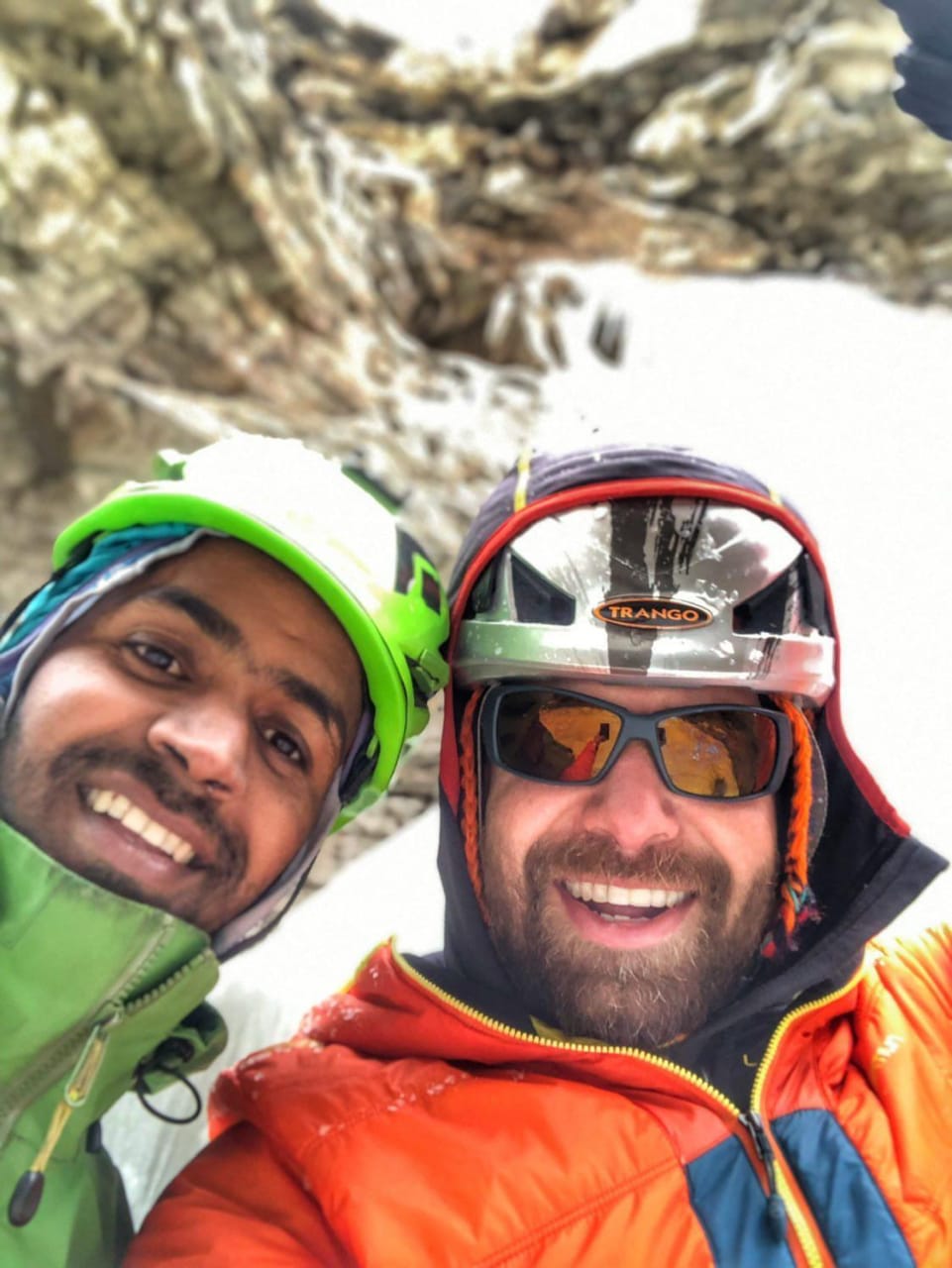
Novak also refuted Sojitra’s claims of locals being cut out of the film. “Karn... has more airtime than Karsten and I combined. We gave voice internationally to Karn, Perna, and Bharat to let them talk about their climbing...their community, and we were honoured to tell the story together”.
“Karn begins and ends the film.”
“Watch the film and tell me if the film is violent. This film is contrary to both of those things.” It’s a shame that an American North Face athlete is drowning out the voices of people that are working hard and creating a festival in the Spiti valley of India, as he sits at home.
https://www.instagram.com/p/B4kmKvpjfNc/
Noval further told us that his co-director, Austin Schmidt, reached out to Sojitra, asking if he’d like to meet and discuss the topic. “You know what Vasu told him? ‘I’m too busy and I get paid a lot of money to speak about these issues.’ According to Novak, Sojitra made the same statement to another person who disagreed with him.
“Vasu and Karsten have skied together but he never reached out to convey any issues he had with the film, he saw it in December 2019, the film went on a national tour, headlined major ice festivals across the country, but he never managed to say a single solitary thing till now. He could have walked up to Karsten or me or Austin or our mutual friends. He did none of those things. Instead, he decided to create a campaign, which drowned out the voice of Indian climbers. I think the facts of his actions speak for themselves”.
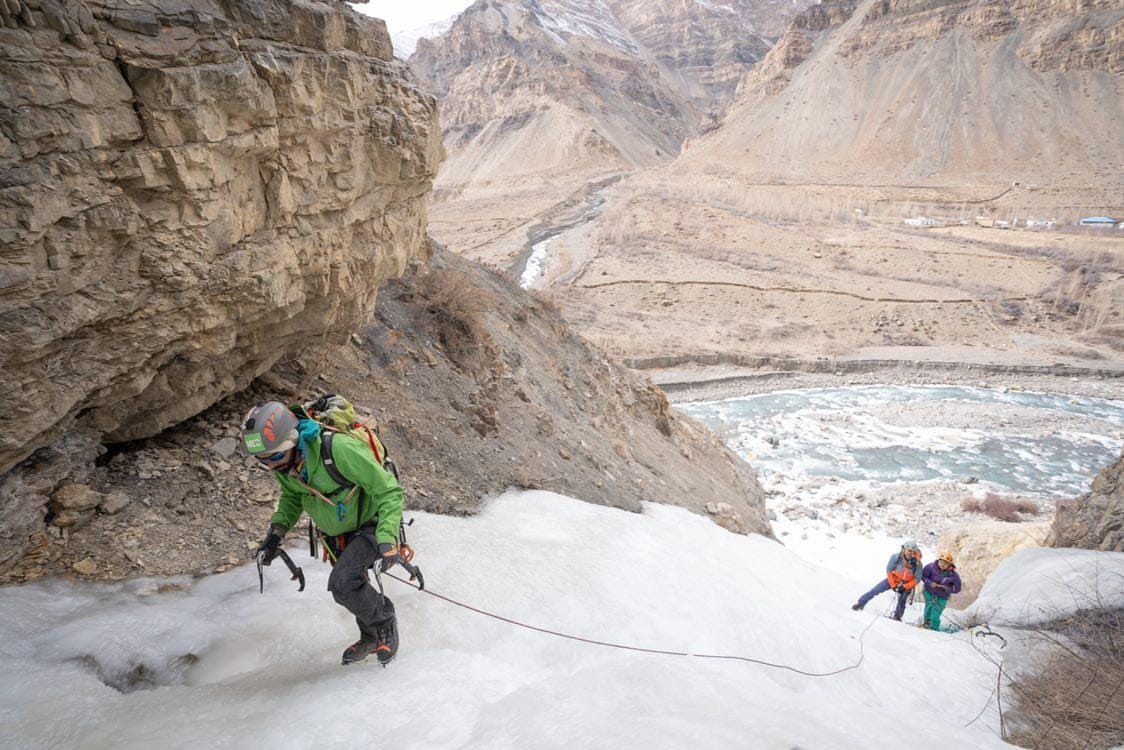
“Funny use of the word indigenous by someone from America"
Karsten Delap is a mountain guide, rescuer, photographer, and a La Sportiva athlete. Being a volunteer on rescue teams, Delap was busy in the ambulance when we reached out to him but emailed us his answers.
Delap said, “Ari, Austin, and myself were invited to India by our friend Karn (who) wanted us to come, climb and adventure as equals. I feel we did this. I feel we made many friends along the way. Honestly, I just don’t try to see differences in people, but instead similarities. As far as erasing culture, and the white saviour complex thing, anyone who says this is simply ignorant and wasn’t there. But I am sure my Indian friends can speak to that”.
When asked about his thoughts on Vasu’s assertion of this film having "very little regard for the indigenous people of India”, Delap responded, “funny use of the word indigenous by someone from America”.
Petzl’s Response
The Outdoor Journal reached out to Petzl, and received a response from Adam Peters, the Team and Events Specialist for Petzl USA. He said, “Petzl did not financially back, produce or direct any part of Himalayan Ice. We donated several sets of used ice tools, crampons, helmets and harnesses for the ice festival featured in the film, consistent with our relationship with various non-profits across the globe (e.g., Girl in the Wild, Khumbu Climbing Center, Memphis Rox). To this point, the film’s final credits recognize Petzl as providing “Climbing Gear and Support." This was our only contribution to the film.”
"this type of conversation helps drive a culture of careful reflection at Petzl"
He went on to state, “Petzl purchased several photos of the trip from photographer Austin Schmitz in early 2019 (after the trip concluded) for a short news post and Facebook announcement about the first ascents by Mr. Bhushan, Mr. Delap, and Mr. Novak. We’ve taken the news post down until our larger team can review it, but the Facebook post from January 2019 remains up. We also posted a Facebook link to the film when it released recently on streaming platforms such as YouTube, Amazon Prime and Google Play. We’ve since taken this link down. Ari Novak is not on the Petzl Team. We provided Mr. Novak with some Petzl gear for a brief time in 2019, after the trip to India featured in Himalayan Ice. We have since moved on from that unofficial relationship for other reasons than those related to the film. Karsten Delap is affiliated with Petzl as a Guide Ambassador. He teaches several clinics for us at ice and rock climbing festivals around the United States”.
Peters said, “Mr. Sojitra may not have been aware of these details in his characterization of Petzl's role with the film, producers and production. I just want to make sure we all have the correct information. With this set of facts in mind, we believe that Mr. Sojitra’s concerns do highlight a very important topic. It’s difficult to address those concerns directly, as a consequence of the method of his communication, the unevenness of his understanding of Petzl’s involvement in Himalayan Ice, and the concerns voiced by members of the Indian climbing community in response to his claims. However, broadly speaking, this type of conversation helps drive a culture of careful reflection at Petzl regarding the content we create and the stories we tell”.
Peters closed by reiterating, “we are in the business of manufacturing equipment for all people to access the inaccessible, and many of our community outreach efforts are tailored to support underserved populations as a matter of course. We do this because everyone’s inaccessible is different, and for Petzl, corporate social responsibility means recognizing those differences and leveraging our resources and expertise to find the right solutions”.
We have reached out to Vasu Sojitra for further comments, as well as La Sportiva. At the time of publishing, we have not received a reply from the brand, while Sojitra said he would be compiling and sharing a complete document with his views.
Featured Image: Ari Novak on Snow Leopard (HWI 7), Spiti Valley, India. Photo: Austin Schmitz



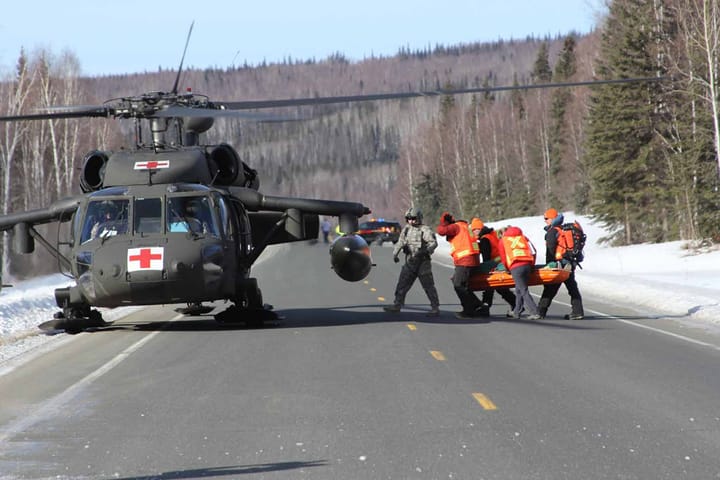
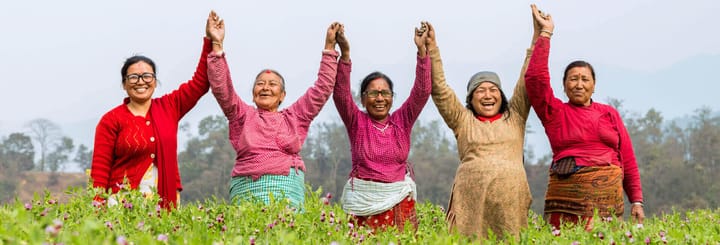
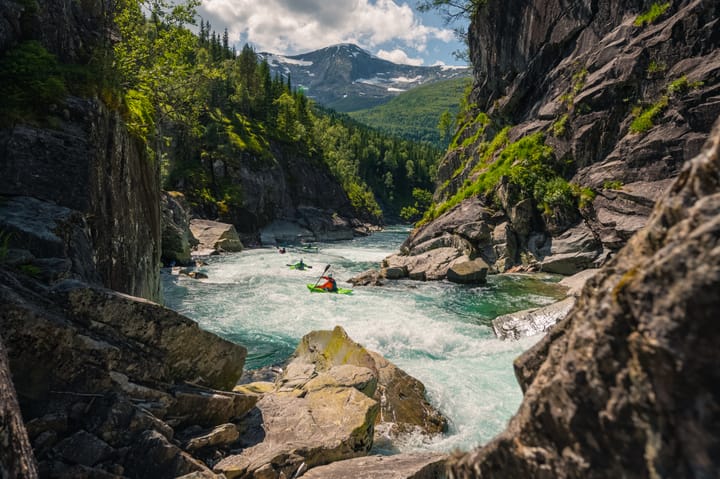
Comments ()